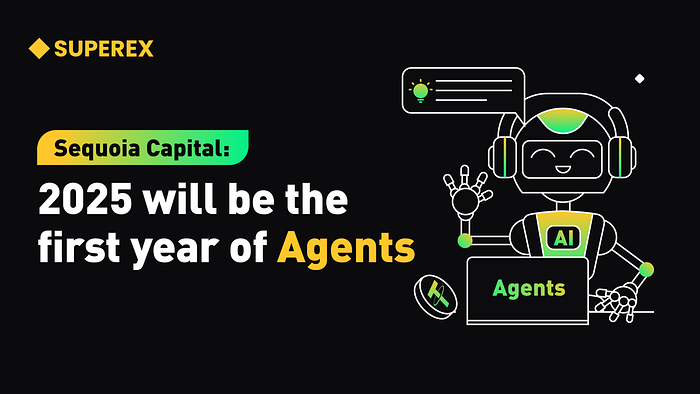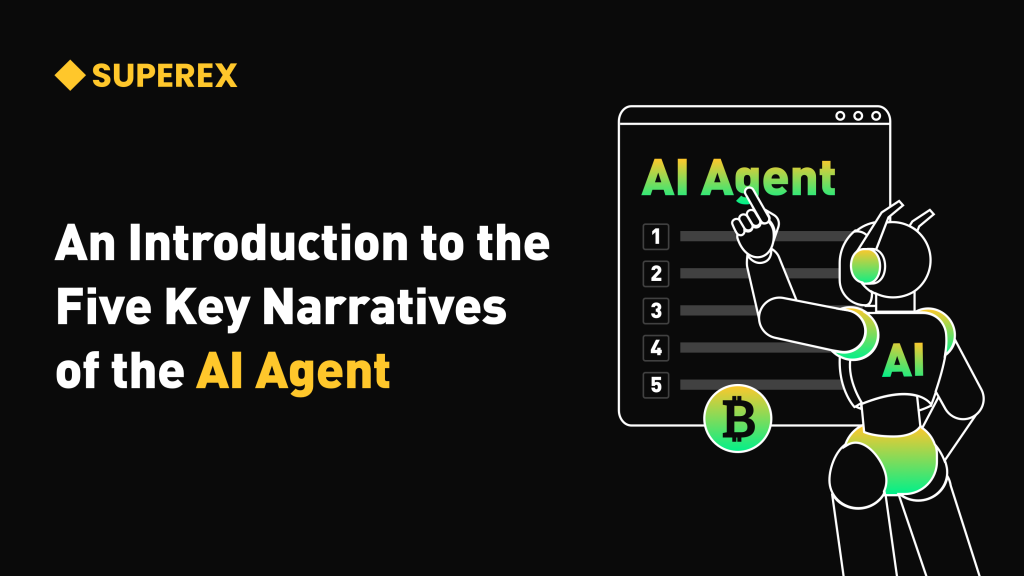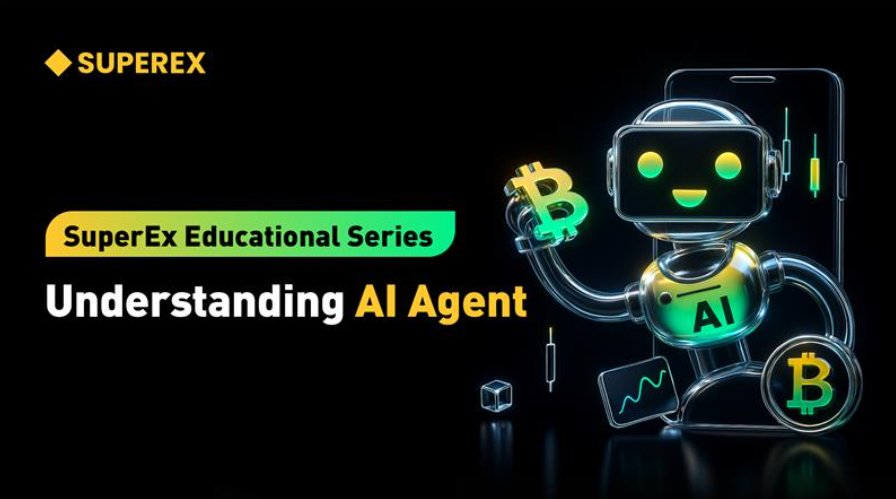SuperEx丨Sequoia Capital: 2025 will be the first year of Agents

#SuperEx #Sequoia #AiAgents
On January 3, 2025, the cryptocurrency market witnessed a significant pullback in the AI sector. According to data from CoinMarketCap, the sector experienced a 12.1% decline within 24 hours, with ZEREBRO and AI16Z dropping 19.54% and 16.3%, respectively. Despite this, the on-chain AI token domain remains robust, with several emerging projects surpassing a market capitalization of $10 million in just one day.
Meanwhile, market institutions are only beginning to embrace AI agents. In a recent exclusive interview with Bloomberg, Sequoia partner Konstantine Buhler emphasized that the current AI trend focuses on “intelligent agents” — AI systems designed to accomplish specific tasks.
Buhler predicts that from 2025 onward, AI agents will evolve from singular entities to collaborative networks, where multiple agents interact and even compete to accomplish more complex tasks.
Furthermore, he highlighted healthcare and education as the next critical arenas for AI, with the potential to reduce costs and improve efficiency, thereby driving societal progress. For instance, in healthcare, multiple AI agents could collaborate to deliver a comprehensive medical service workflow: one agent analyzing a patient’s medical history, another providing precise diagnosis, and a third devising personalized treatment plans and evaluating outcomes. In education, collaborative AI could dynamically adjust teaching materials to suit students’ learning habits and interests, significantly enhancing learning efficiency.
- Click to register SuperEx
- Click to download the SuperEx APP
- Click to enter SuperEx CMC
- Click to enter SuperEx DAO Academy — Space

Healthcare and Education: The Golden Fields for AI
Healthcare: A Catalyst for Cost Reduction and Efficiency Improvement
The global challenges of high costs and inefficiencies in healthcare are exacerbated by aging populations. AI technology is gradually becoming a pivotal solution to these issues.
AI agents have promising applications in healthcare, including:
- Disease Prediction and Early Screening: By analyzing vast health data, AI can issue early warnings before symptoms appear. For example, based on genetic data and lifestyle habits, agents can predict the likelihood of chronic or hereditary diseases and recommend preventive measures.
- Diagnosis and Treatment Optimization: AI agents can quickly integrate the latest medical research and clinical data to provide optimal treatment plans. In some diagnoses, such as skin cancer or diabetic retinopathy, AI’s accuracy has already surpassed that of human doctors.
- Drug Development and Clinical Trials: AI can significantly shorten the drug development cycle by simulating molecular interactions to quickly identify potential candidates. Additionally, agents can design more efficient clinical trial processes, reducing development costs.
Education: Comprehensive Realization of Personalized Learning
AI is also poised to revolutionize education, an untapped market. Traditional one-size-fits-all teaching models often overlook individual needs. The introduction of AI agents ushers in an era of truly personalized education.
Key areas of potential include:
- Intelligent Teaching Assistants: AI can analyze students’ learning records in real time, identifying weak areas and recommending targeted resources. For example, a student struggling with grammar might receive additional exercises, while another with a weak math foundation could access specialized courses.
- Immersive Learning Experiences: By combining virtual reality (VR) and augmented reality (AR), AI agents can create immersive learning environments. For instance, students can “visit” the Roman Colosseum in history class, experiencing its cultural context firsthand.
- Empowering Tools for Teachers and Administrators: AI can assist teachers in designing more effective curricula and provide decision-making support to administrators, such as optimizing resource allocation or improving teacher performance.
While the on-chain AI token market demonstrates immense growth potential, its high volatility serves as a reminder for investors to remain cautious. On one hand, emerging projects offer lucrative opportunities for early investors; on the other, regulatory risks, technological barriers, and intensified competition could hinder future development.
In his interview, Konstantine Buhler noted, “The true value of AI technology lies in its ability to enhance productivity, not merely in speculation or concepts.” This underscores the importance for investors to focus on AI projects with real-world applications and clear use cases rather than blindly chasing market trends.
Looking ahead, AI agents represent not just a technological innovation but a transformative force for society. As these agents increasingly take over complex tasks, humans will have more time to focus on creativity and emotional engagement. The advent of collaborative networks also introduces new organizational possibilities for socio-economic activities.
For instance, in finance, multiple AI agents could form a decentralized investment team to execute multi-strategy trades and optimize asset allocation in real time. In environmental protection, agents could collectively monitor global climate changes and propose optimal countermeasures.
In conclusion, 2025 marks a critical milestone in the development of AI agents. From on-chain tokens to collaborative networks and applications in key fields like healthcare and education, AI is propelling humanity toward a more efficient and intelligent future. And this is just the beginning.







Responses